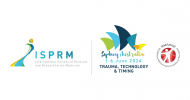Session outline
- Hypertonia with spasticity or dystonia is a very common complication of upper motor neuron involvement and is commonly seen in persons with neurological disorders in clinical practice.
- Chemodenervation can be done by intramuscular injections of botulinum toxin which is highly effective but cost is prohibitive and hence not commonly used in low in middle income countries.
- Neurolysis is the temporary denervation of a targeted nerve or nerve plexus by directed infiltration of chemicals. Currently, neurolysis is most often performed with ethanol and phenol. Phenol denatures protein readily and may cause denervation when injected near neural structures, leading to loss of cellular fatty content, separation of the myelin sheath from the axon, and axonal edema. Phenol’s effects may be a combination of both neurotoxicity and ischemia.
- When used for the treatment of acquired muscle spasticity, phenol nerve injection can provide a temporary motor nerve blockade lasting weeks or months, which may improve physical functioning and gait.
- Phenol neurolysis or chemodenervation was done using anatomic land marks causing significant side effects. Ultrasound guided phenol chemodenervation is a good alternative to botulinum toxin being more cost effective and with longer duration of action.
- This workshop will help participants to understand the mechanism of action, injecting technique, ultrasound guidance, and safety and efficacy of phenol in clinical practice for chemodenervation for focal spasticity.
Learning outcomes
- Basics of Neurolysis
- Phenol preparation and mechanism of action
- Ultrasound guided Phenol neurolysis for upper limb spasticity
- Ultrasound guided Phenol neurolysis for lower limbs spasticity
Target audience
- Medical practitioners
- Students
- Trainees
- Nursing staff



